Jianjing Dynamics | Joining Hands for Accessibility: Chairman Huang Zhiting Leads the Team to Attend the First National Workshop on Accessible Consult
Accessible facility construction is a symbol of a country’s and society’s civilization. Since the 18th National Congress of the Communist Party of China, China’s accessible environment construction has entered a new stage of legalization and professionalization. With the promulgation and implementation of the Law of the People’s Republic of China on Accessible Environment Construction, and the advancement of national strategies such as the "Healthy China 2030" Plan, accessible environments have evolved from "public welfare supplements" to "essential people’s livelihood needs," covering all groups and the entire life cycle. They have become an important benchmark for measuring social equity, civilized progress, and high-quality development.
Recently, the first national workshop on accessible consulting management successfully concluded at Nanjing Normal University of Special Education. Supported by the United Nations Children’s Fund (UNICEF) China Office, co-hosted by the China Disabled Volunteers Association and Nanjing Normal University of Special Education, and co-organized by the Accessible Environment Think Tank Committee, the National Accessible Management Training and Consulting Center, and the School of Management (School of Accessible Management) of Nanjing Normal University of Special Education, the workshop gathered over 150 participants. These included representatives from universities, research institutions, architectural design firms, consulting and certification agencies, local accessible promotion associations, as well as teachers and students majoring in accessible management from Nanjing Normal University of Special Education. Huang Zhiting, Chairman of Jianjing Investment Consulting Co., Ltd. (hereinafter referred to as "Jianjing Consulting"), an outstanding practitioner in the accessible field from the corporate sector, was invited to attend and deliver a keynote speech. Focusing on discipline construction and industry-education integration, the participants explored innovative paths for public management and promoted the development of the accessibility cause, injecting strong momentum into the well-being of special groups and social progress.
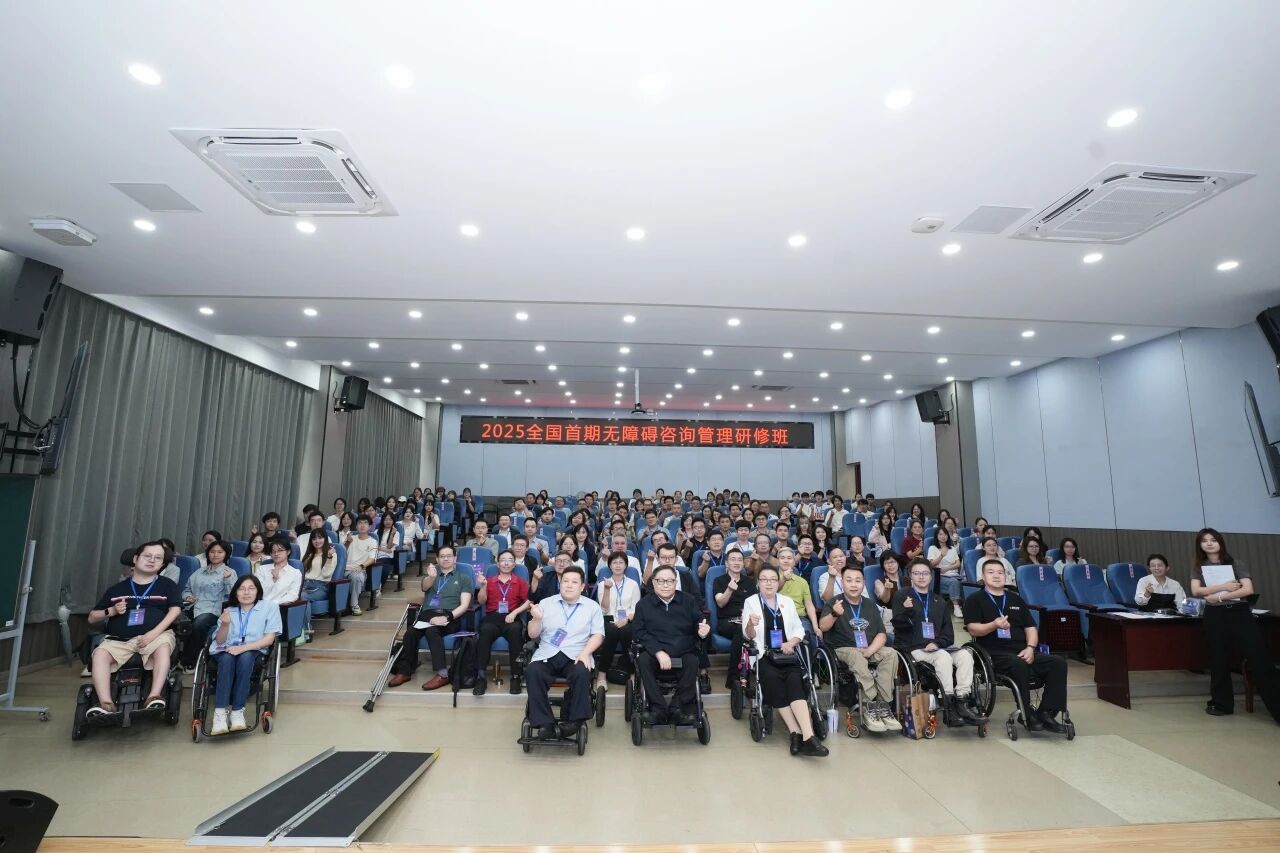
In his opening speech, Wu Binjiang, Member of the Standing Committee of the Party Committee and Vice President of Nanjing Normal University of Special Education, pointed out that with the implementation of the Law of the People’s Republic of China on Accessible Environment Construction, the status of the accessibility cause in national strategies and social governance has been significantly elevated. It is no longer a mere public welfare concept but a key factor in improving people’s livelihood, promoting social equity, and advancing civilization, which is an inherent requirement of modernization and high-quality development. Currently, the accessibility cause has entered a deepening stage, posing higher demands on talents, standards, and management. This workshop is not only a measure to implement laws and promote the landing of standards but also a practice to cultivate professional backbones and enhance the sustainable development momentum of the industry.
Lü Shiming, Chairman of the China Disabled Volunteers Association, emphasized that September 2025 marks the second anniversary of the implementation of the Law of the People’s Republic of China on Accessible Environment Construction, the first anniversary of the opening of the National Accessible Environment Exhibition Hall. Over the past five years, the accessibility cause has achieved brilliant results, greatly inspiring all stakeholders. As a cradle for training special education teachers in China, Nanjing Normal University of Special Education is also the only university approved by the Ministry of Education to offer the undergraduate major of "Accessible Management." Since its establishment in 1982, the university has received long-term support from the UNICEF China Office, which is a bridge of cooperation built on the concepts of "equality, integration, and sharing." This workshop is a consensus-based cooperation of the accessible think tank, a platform for exchanges between young talents and disabled experiencers, and a collision of wisdom to plan the new development of the accessibility cause during the "15th Five-Year Plan" period. Currently, China has achieved "enacting major laws, formulating policies, promoting standards, and building exhibition halls" in the accessibility field, forming a system of public interest litigation and certification evaluation. In the future, it is necessary to further build supporting mechanisms for accessible social credit construction and consulting management, promote full-life-cycle accessible engineering consulting management as a new format, and facilitate the recognition of "accessible consulting manager" as a new occupation, laying a solid foundation for the high-quality development of accessible environment construction and ensuring the effective implementation of the Law of the People’s Republic of China on Accessible Environment Construction.
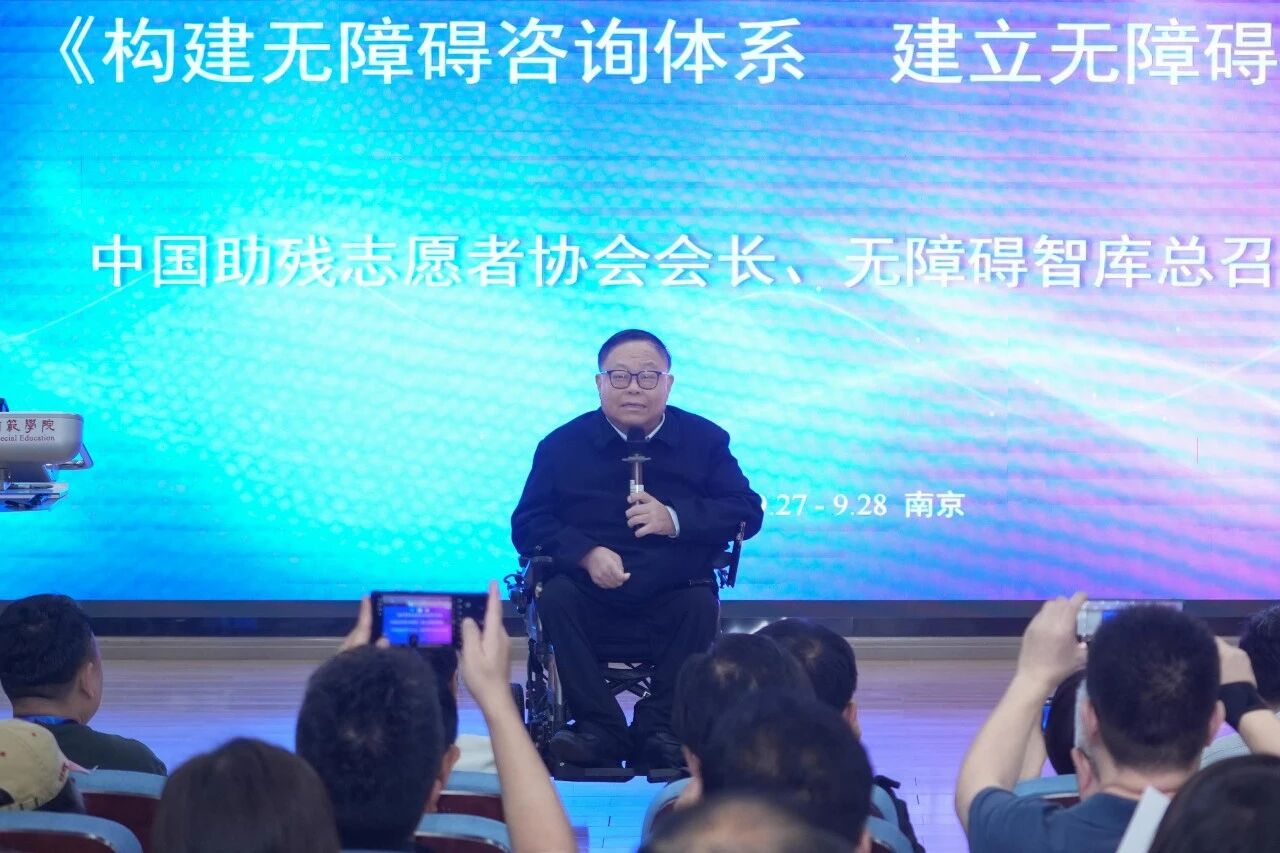
Subsequently, five national experts in the accessibility field delivered keynote reports, covering standard formulation, spatial planning, international concepts, local practices, mechanism construction, and professional empowerment. These reports systematically outlined the multi-dimensional and comprehensive future development direction of accessible environment construction.
Among them, Sun Chunyan, Deputy Director of the Certification Supervision and Technology Research Center of the State Administration for Market Regulation, analyzed the core framework and implementation standards of accessible environment certification in her report Accessible Environment Certification System and Implementation Rules; Professor Pan Haixiao from the Department of Urban Planning at Tongji University proposed optimized paths for facility construction and supervision combined with urban planning practices in his speech Construction, Supervision and Evaluation of Accessible Facilities in Public Environments; Zhu Changkang, Professor-level Senior Engineer from Shanghai Municipal Planning and Design Research Institute Co., Ltd. and Consultant of the National Expert Committee on Accessible Environment Construction, focused on Normal Mechanisms for Accessible Environment Construction Consulting and explored ways to establish a long-term consulting service system.
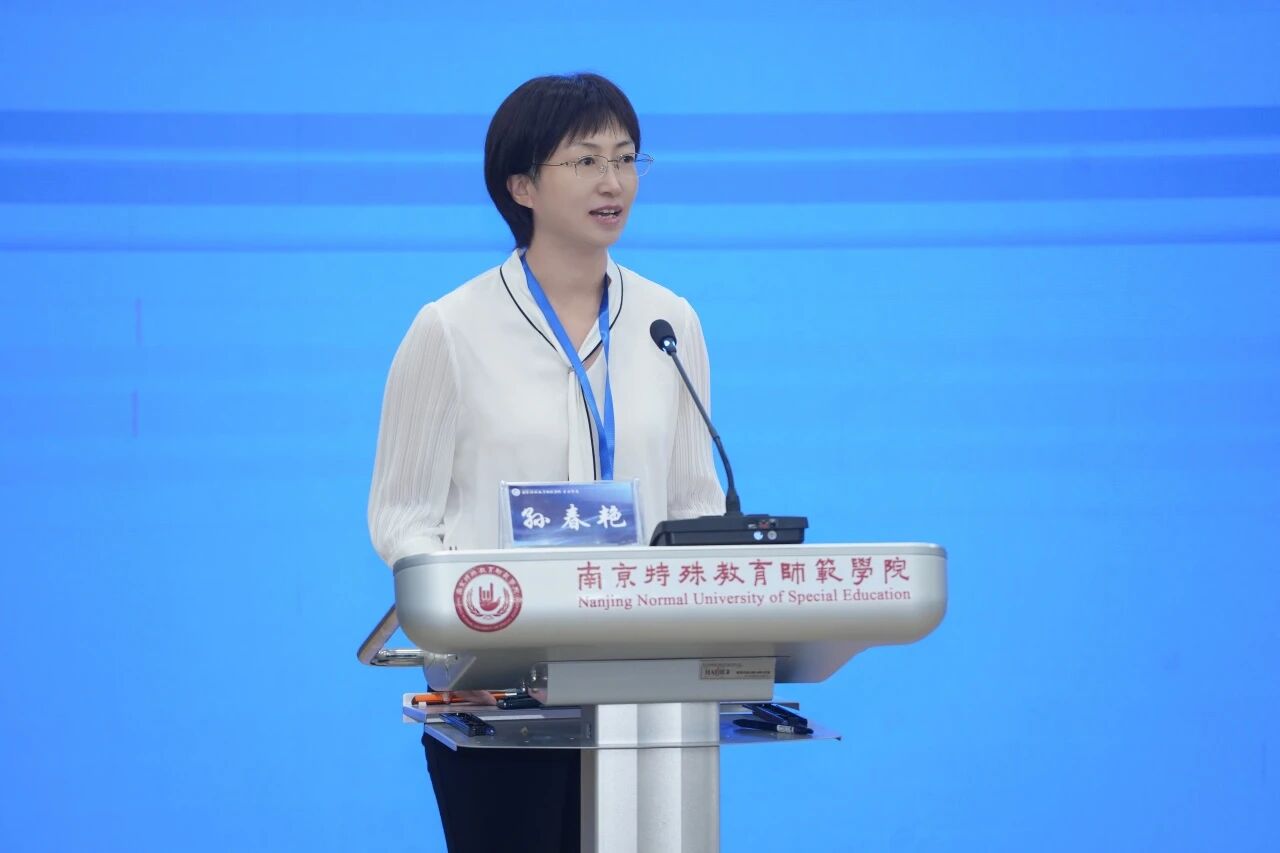
Beyond domestic standards and urban practices, international concepts of disability integration and experiences in protecting children’s rights have provided a broader humanistic dimension for the development of the accessibility cause. Li Shenrui, Project Officer from the Child Protection Section of the UNICEF China Office, delivered a thematic report titled Disability-Inclusive Experience Workshop: Overview of Global Development of Children and Adolescents with Disabilities, Understanding Children’s Rights and Disability Inclusion, sharing international experiences through three dimensions: data, concepts, and practices.
Citing UNICEF’s 2022 report Counted, Seen, Included, Li Shenrui outlined the real predicament of disabled children with data. He pointed out that there are approximately 240 million disabled children worldwide, accounting for 12.6% of the total child population—equivalent to the child population of Japan twice—but they have long been "statistically visible but insufficiently concerned." More critically, disabled children face significant gaps in multiple fields: in terms of health, the stunting rate is 34% higher than that of ordinary children, and the proportion of acute respiratory infections is 53% higher; in education, the proportion of receiving early education is 25% lower, the proportion of mastering basic literacy skills is 42% lower, and the proportion of being out of school is 49% higher; in terms of rights, the proportion of suffering severe corporal punishment is 32% higher, the proportion of feeling discriminated against is 41% higher, and the proportion of having positive expectations for the future is 20% lower. "Behind these numbers are children who cannot grow up equally due to disabilities—perhaps a visually impaired girl who cannot see textbooks clearly, or a physically disabled boy who cannot enter the school gate. Their dilemmas are the directions that the accessibility cause needs to break through."
In the core part of the report, Li Shenrui dispelled public misunderstandings about "disability." He pointed out that traditional concepts equate "disability" with "individual physical or mental impairment," regarding it as a "problem of a minority group." However, the international consensus is that disability = individual physical and mental differences + external barriers (concepts, physical environments, systems, etc.). "Each of us may be a 'temporary disabled person': parents holding babies are blocked by steps without ramps, ordinary people who cannot hear broadcasts in noisy shopping malls, and elderly people who cannot see signs in dim environments—these are all 'situational disability experiences.'" He also took the opening ceremony of the Beijing Winter Olympics as an example: a nearly blind elderly man leaned close to the TV to watch the game, "integrating" into sports activities as an audience member, vividly illustrating that disability is not a "label" but an "environmental adaptation issue." Breaking the binary opposition between "us and them" is the starting point of integration.
Based on the reshaping of concepts, Li Shenrui proposed three actionable paths. First, reflective action. He suggested frequently asking three questions: "Why are disabled people rarely seen in daily life?" "How to enable disabled people to participate equally?" "Who can benefit from improvements?"—for example, libraries providing accessible audio-visual materials not only serve the visually impaired but also benefit the elderly and students reading on the go, reflecting the value of "universal design." Second, changing language concepts. Abandon discriminatory terms such as "invalid" and "blind," and use "visually impaired" and "hearing impaired" instead; rename "disabled seats" to "accessible seats" to eliminate labeling. Third, deep participation of disabled groups. Quoting the international slogan "Nothing about us without us," he emphasized that accessible design must invite disabled people to participate to avoid "formalistic decorations."
This sharing not only expanded the focus of the accessibility cause from "physical facility adaptation" to "protection of children’s rights and full-group integration" but also injected humanistic warmth and innovative ideas into domestic accessibility practices through international experiences, providing important conceptual support for the subsequent construction of local consulting mechanisms and the implementation of corporate practices.
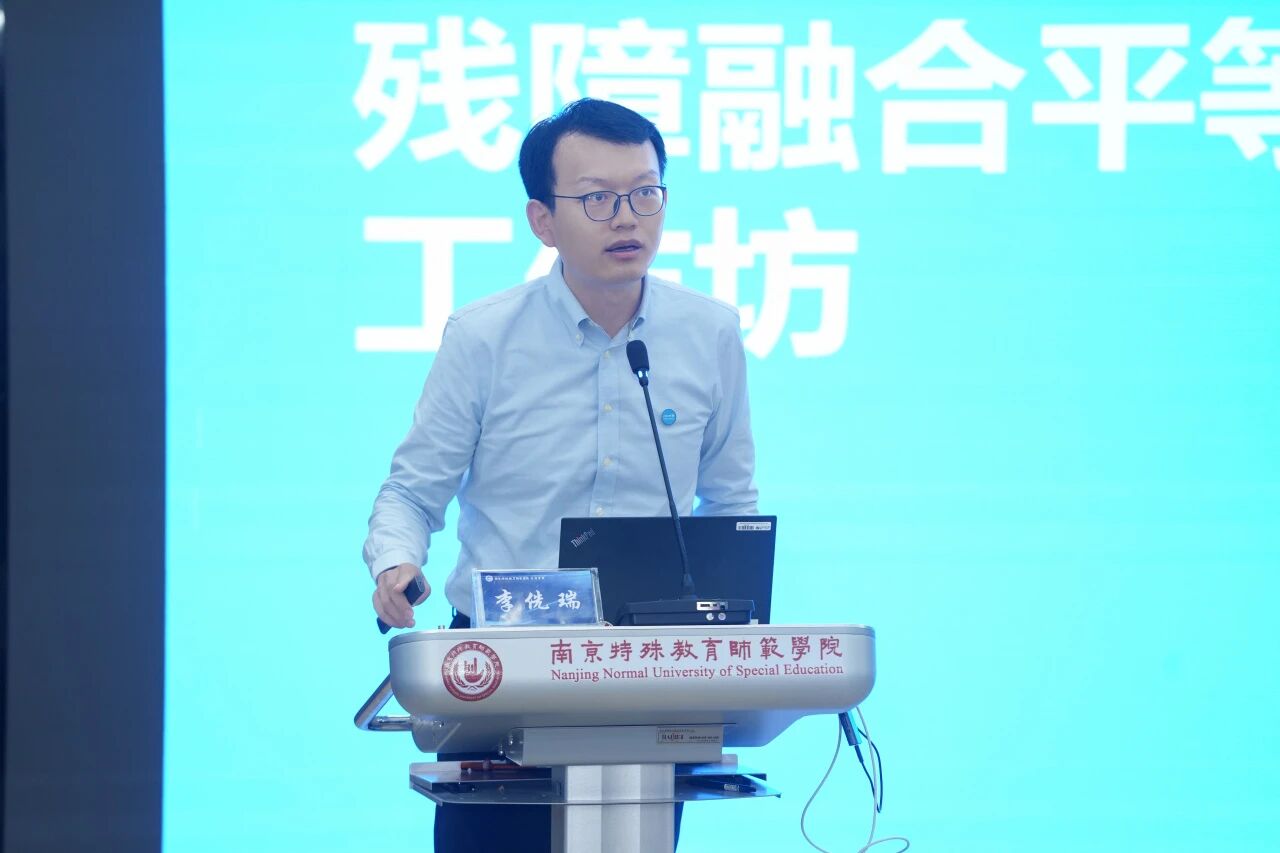
As a representative of the corporate sector, Huang Zhiting, Chairman of Jianjing Investment Consulting Co., Ltd., focused on the core logic of full-life-cycle accessible consulting and delivered a keynote speech titled Full-Life-Cycle Consulting Empowers High-Quality Accessible Environment Construction, following the thread of "value—path—innovation—suggestions—outlook."
Chairman Huang Zhiting first explained the contemporary significance of accessible environment construction and the core value of full-life-cycle consulting from the macro background of modernization. He pointed out that accessible environment construction is by no means a "niche demand" but a "universal demand" covering the entire life cycle of individuals—from the travel care of infants and young children to the age-friendly needs of the elderly, and the daily convenience of disabled people. Accessible environments are the basic project to ensure the quality of life for all people.
From a policy perspective, the "Healthy China 2030" Plan clearly proposes "focusing on all groups and the entire life cycle, and highlighting the solution to key groups’ health issues." Accessible environments are not only a key measure to promote the physical health and social participation of special groups but also an important embodiment of protecting human rights. In this context, "full-life-cycle consulting," as a professional intellectual service throughout the entire project cycle, its value is concentrated in "researching needs, solving problems, and creating value"—through full-process services covering pre-planning, design, construction, acceptance, and operation, it addresses the current pain points in accessibility construction such as "emphasizing construction over management," "emphasizing standards over experience," and "emphasizing short-term results over long-term effectiveness."
Chairman Huang Zhiting emphasized that three major era trends have further spawned an urgent demand for professional consulting: first, the acceleration of population aging—China’s elderly population over 60 has exceeded 300 million, putting forward higher and more refined requirements for the integration of age-friendly and accessible construction, which traditional experience is difficult to meet; second, the transformation of the accessibility cause from "having facilities" to "having high-quality facilities," which requires professional technical support for high-quality development; third, the transformation of urban construction from incremental expansion to stock improvement, with refinement and humanization as the core direction—accessible construction needs to be deeply coordinated with urban renewal.
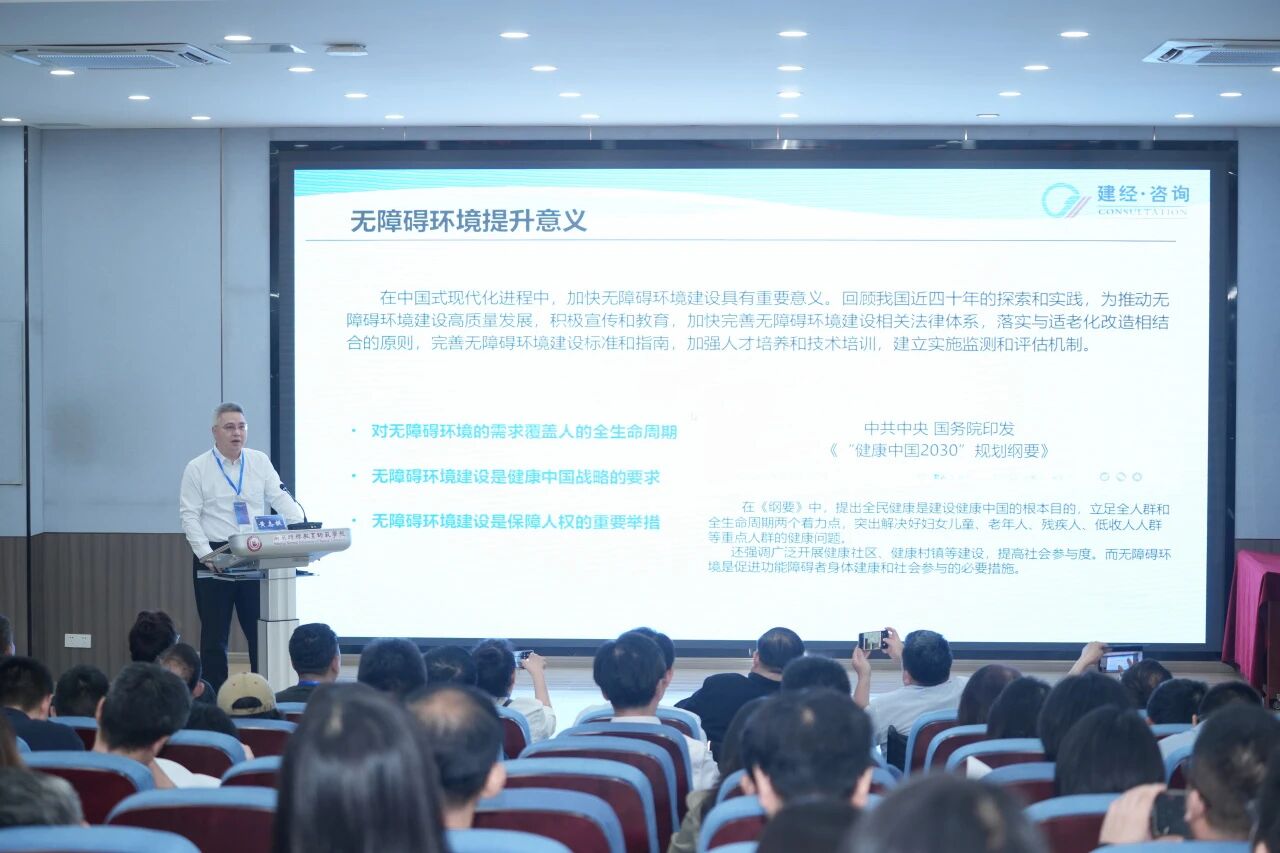
Based on a profound insight into needs, Chairman Huang Zhiting detailed the implementation path of full-life-cycle accessible consulting and proposed a full-cycle service framework of "front-end guidance, process optimization, and back-end evaluation."
The front-end guidance phase focuses on "source control" to avoid waste from later rectification. In the consulting for regional special accessible planning, consulting institutions need to deeply participate in the formulation of government special plans to ensure the organic connection between accessible planning and overall urban planning, transportation planning, community planning, etc., and clarify construction goals and implementation paths from the top-level design; in the consulting for project feasibility studies, fully integrate accessible requirements into project approval demonstrations, and reasonably determine construction standards and investment estimates in combination with project positioning, service groups, and regional characteristics, avoiding the problems of "standards being too high to implement" or "standards being insufficient to use"; in the consulting for the preparation of design briefs, assist the owner in clarifying the core requirements and technical indicators of accessible design, setting a "rigid bottom line" for the subsequent design phase.
The process optimization phase emphasizes "both standardization and humanization" to ensure the simultaneous improvement of construction quality and user experience. In the design phase, through an innovative model of "experiential review," organize target groups such as disabled people and the elderly to participate in on-site experiences, simulate scenarios such as the walking paths of visually impaired people and the information acquisition of hearing impaired people, accurately identify systemic defects such as guidance signs and facility layout, and then propose optimization plans in accordance with standards and specifications; in the construction phase, strengthen "technical supervision and guidance"—on the one hand, provide accessible technical disclosure to construction units to ensure they accurately understand the design intent, and on the other hand, conduct full-process quality inspections to promptly address technical difficulties and design changes during construction, ensuring the effective implementation of accessible requirements.
The back-end evaluation phase achieves continuous optimization through the construction of "PDCA closed-loop management." Chairman Huang Zhiting pointed out that accessible environment construction is not a "one-time project" but a "long-term task of dynamic iteration." Through the Post-Occupancy Evaluation (POE) system, comprehensively use methods such as user interviews, questionnaires, and on-site observations to gain in-depth insights into the real feelings and usage pain points of special groups, quantitatively analyze facility satisfaction and demand preferences, and provide scientific basis for project optimization, standard revision, and certification evaluation, forming a virtuous cycle of "construction—feedback—improvement—reconstruction."
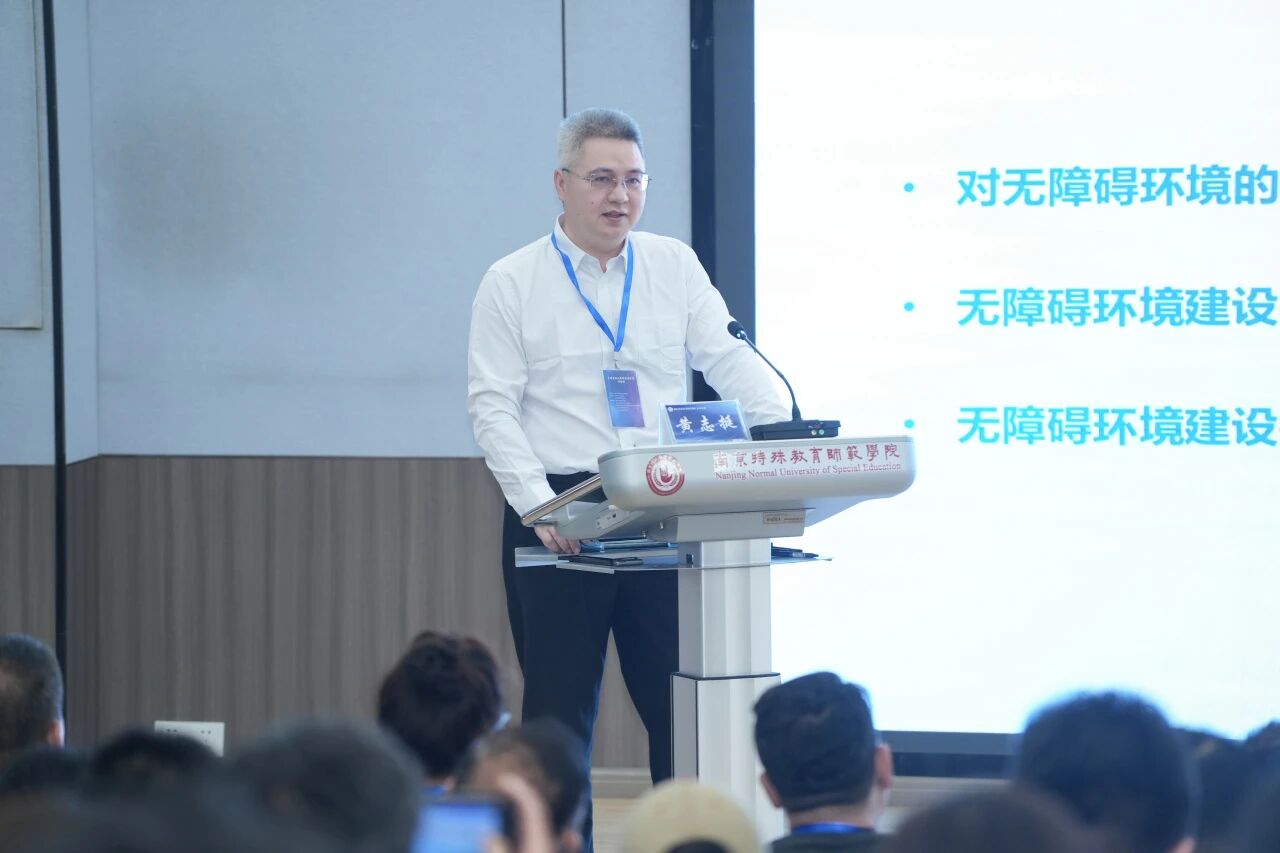
Facing the wave of the digital economy and industrial upgrading, Chairman Huang Zhiting proposed that full-life-cycle accessible consulting needs to take "digitalization, standardization, and professionalization" as the direction of innovation to activate new momentum for high-quality development.
Digital transformation is the core breakthrough. He focused on the application scenarios of three major technologies: VR/AR technology can simulate the first-person usage experience of different groups such as the visually impaired, hearing impaired, and physically impaired by building a virtual accessible environment, which can identify defects in advance during the design phase, greatly reduce trial-and-error costs, and truly realize the "people-oriented" design concept; BIM technology can carry out design review, conflict detection, and scheme optimization in a virtual environment by establishing an accessible information model, transforming the traditional "discovering problems during construction" into "solving problems before construction," significantly improving design and construction efficiency; artificial intelligence can provide accurate demand portraits and solutions for accessible construction by analyzing massive user data and facility usage data—for example, for the renovation of old residential communities, AI can automatically match the most suitable accessible renovation plan.
Standardization construction is an important support. Chairman Huang Zhiting called on consulting institutions to actively participate in the construction of the standard system and promote the formation of a multi-level system of "national standards + industry standards + group standards + corporate standards." Strengthen the rigid constraints of mandatory national standards in top-level design, formulate professional industry standards in segmented fields, and encourage industry organizations and enterprises to launch innovative group standards and corporate standards in combination with practices to fill the gaps in existing standards and raise the industry’s technical threshold.
Professional talent training is the fundamental guarantee. He pointed out that full-life-cycle accessible consulting requires interdisciplinary talents who understand both technical standards and management operations, and are proficient in both theoretical knowledge and practical scenarios. To this end, it is necessary to build a training path of "university cultivation + on-the-job training + ecological gathering": cooperate with universities to offer professional courses on accessible consulting to cultivate professional talents from the source, and at the same time link the scientific research capabilities of universities to carry out research projects and new product development; carry out professional training for on-the-job personnel to update their knowledge systems, laying the foundation for the qualification certification of accessible consultants and the construction of the industry credit system; gather expert resources from multiple fields such as architecture, planning, rehabilitation, and management to provide comprehensive intellectual support for complex projects.
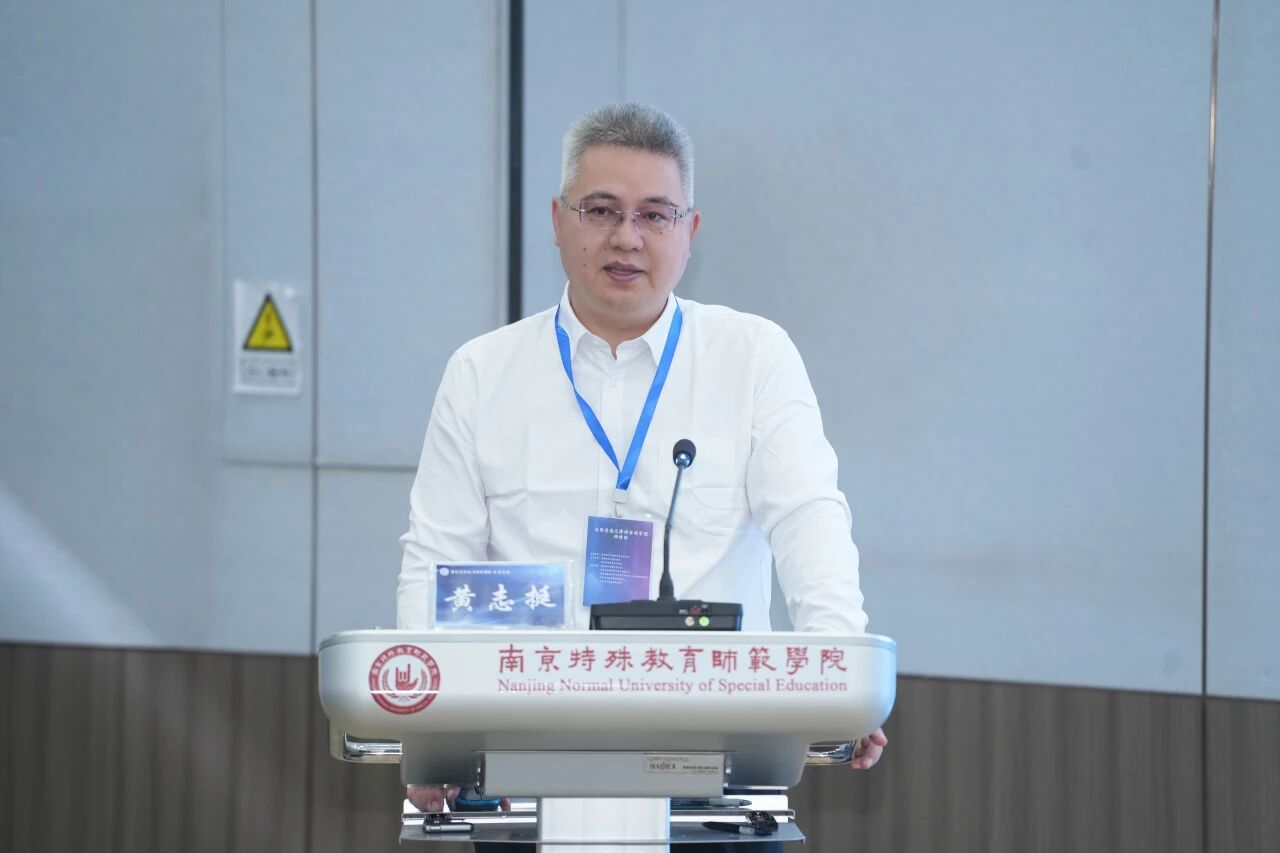
In response to the current problems in the accessible consulting industry such as "unclear legal status, insufficient market demand, and lack of industry self-discipline," Chairman Huang Zhiting put forward three suggestions for industry development.
First, improving the legal and policy system is the top priority. He suggested further clarifying the legal status and statutory responsibilities of accessible consulting in relevant laws and regulations such as the Law of the People’s Republic of China on Accessible Environment Construction, and mandating the inclusion of accessible special consulting in major public projects and people’s livelihood projects; establishing and improving the professional qualification system for accessible consulting, implementing the "registered accessible consultant" system, and clarifying the qualification grading standards and assessment mechanisms; improving the evaluation and credit system, implementing "credit rating + blacklist" management for consulting institutions, and standardizing the market order.
Second, cultivating the professional consulting market requires "dual guidance from the government and demonstration leadership." In terms of government guidance, mandate the procurement of accessible special consulting services for government-invested public buildings, transportation hubs, renovation of old residential communities and other projects, establish pilot demonstration cities, and provide financial subsidies for consulting fees to reduce the cost concerns of owners; in terms of demonstration leadership, regularly release a collection of excellent accessible consulting cases, intuitively demonstrate the economic and social value of consulting services through data comparison and benefit analysis, so that the market "can see the benefits and is willing to invest costs."
Third, strengthening industry self-discipline and international cooperation is an important path to improve the industry level. He advocated the establishment of a national accessible consulting industry organization to formulate unified service standards, charging standards, and professional ethics norms, establish a complaint handling mechanism, and maintain industry credibility; actively carry out international exchanges and cooperation, learn from the advanced experiences and technologies of developed countries such as Europe, the United States, and Japan in the field of accessible consulting, improve the internationalization level of China’s services, and promote Chinese accessible consulting brands to "go global."
Finally, combining the concept of the Central Urban Work Conference that "cities should be planned as organic living organisms," Chairman Huang Zhiting proposed that accessible environment construction should become an "important part" of the urban organic living organism. He emphasized that full-life-cycle consulting will take technology and management as dual fulcrums, integrate multiple elements such as laws, regulations, standards, and humanism, and promote accessible environments from "physical coverage" to "effective services"—not only achieving physical accessibility of facilities but also comprehensive accessibility of information, services, and participation, ultimately realizing the core vision of "equal social participation for all."
"The accessibility cause is not a matter for a certain group, but for everyone; it is not a phased task, but an eternal topic accompanying social development," said Chairman Huang Zhiting. Jianjing Investment Consulting Co., Ltd. will take this conference as an opportunity to deeply participate in the construction of the accessibility industry-education integration community, take full-life-cycle consulting services as the starting point, and work with all parties to build and share an inclusive and beautiful society.
The holding of the first national workshop on accessible consulting management is a key step for China’s accessibility cause to move from "legalization" to "professionalization." From "formulating regulations and systems" at the policy level, to "consulting empowerment" at the practice level, and to "systematic training" at the talent level, this workshop has built a platform for collaboration among government, industry, academia, research, and application, outlining a clear path for accessible environment construction during the "15th Five-Year Plan" period. As an outstanding practical representative in the accessible field from the corporate sector, Jianjing Consulting has played an important role as a bridge and promoter.
The keynote speech Full-Life-Cycle Consulting Empowers High-Quality Accessible Environment Construction delivered by Chairman Huang Zhiting at the workshop provided solutions with both theoretical height and practical guiding significance for the industry from five dimensions: "value—path—innovation—suggestions—outlook." The full-cycle service framework of "front-end guidance, process optimization, and back-end evaluation" accurately addresses the current pain points in accessibility construction such as "emphasizing construction over management," "emphasizing standards over experience," and "emphasizing short-term results over long-term effectiveness"; the digital innovation direction centered on VR/AR, BIM, and artificial intelligence has injected technological momentum into accessible consulting; the suggestions on improving legal policies, cultivating the professional market, and strengthening industry self-discipline have become important references for promoting the formation of the full-life-cycle accessible consulting management format and facilitating the landing of the new occupation of "accessible consulting manager."
Currently, China’s accessible environment construction has entered a







